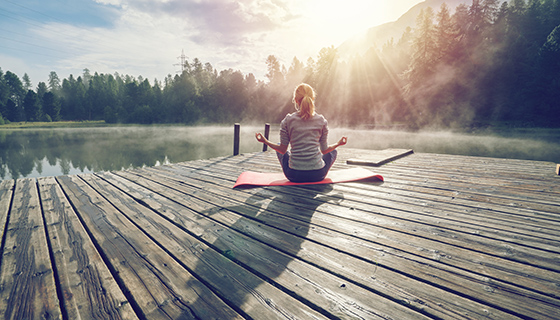Reducing Stress and Improving Sleep
Introduction to Relaxation Techniques
Stress and anxiety can significantly impact our daily lives, affecting not only our mental health but also our physical well-being and sleep quality. According to Luis F. Buenaver, Ph.D., C.B.S.M., a sleep expert from Johns Hopkins, engaging in planned relaxation activities can help reduce stress levels. Unlike passive activities such as watching TV, these techniques encourage a deeper state of relaxation.
Understanding the Importance of Relaxation
Relaxation is not just about unwinding; it’s about giving your body and mind a chance to recover from the stresses of everyday life. When we’re stressed, our bodies tense up, and our minds race, making it difficult to fall asleep or stay asleep. By incorporating relaxation techniques into our daily routine, we can improve our sleep quality and overall well-being.
Practicing Relaxation Techniques
To start your relaxation journey, try the following plan:
- Daily Relaxation Practice: Spend 20 to 25 minutes each day practicing gentle breathing and progressive muscle relaxation. This could involve deep breathing exercises, where you focus on your breath, or progressive muscle relaxation, where you tense and then relax different muscle groups in your body.
- Monitoring Progress: Before and after each practice session, rate your level of emotional and physical stress on a scale from 0 (totally relaxed) to 10 (completely tense). This will help you understand how these techniques are impacting your stress levels.
Choosing the Right Technique for You
After two weeks of practicing both gentle breathing and progressive muscle relaxation, reflect on which technique works best for your anxiety and insomnia. It’s essential to find what suits you best, as everyone’s response to these techniques can vary. Once you’ve identified the most effective technique for you, commit to practicing it every day.
The Benefits of Consistency
Consistency is key when it comes to relaxation techniques. With regular practice, your body and mind will learn to relax more quickly and deeply. This can lead to fewer sleepless nights and an overall improvement in your mental and physical health. As Buenaver notes, the goal is to make relaxation a habitual part of your daily routine, ensuring that you can manage stress and improve your sleep quality over time.
Conclusion
Incorporating planned relaxation activities into your daily routine can have a profound impact on your stress levels and sleep quality. By dedicating a short time each day to gentle breathing or progressive muscle relaxation, you can learn to relax more effectively, leading to better sleep and improved overall well-being. Remember, relaxation is a skill that develops with practice, and with persistence, you can achieve a more balanced and healthier lifestyle.

